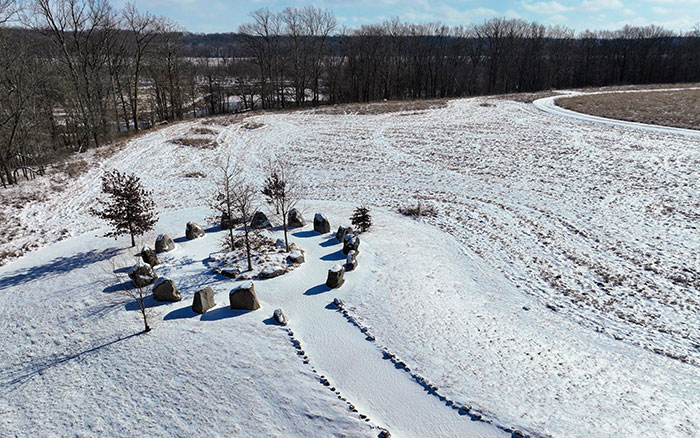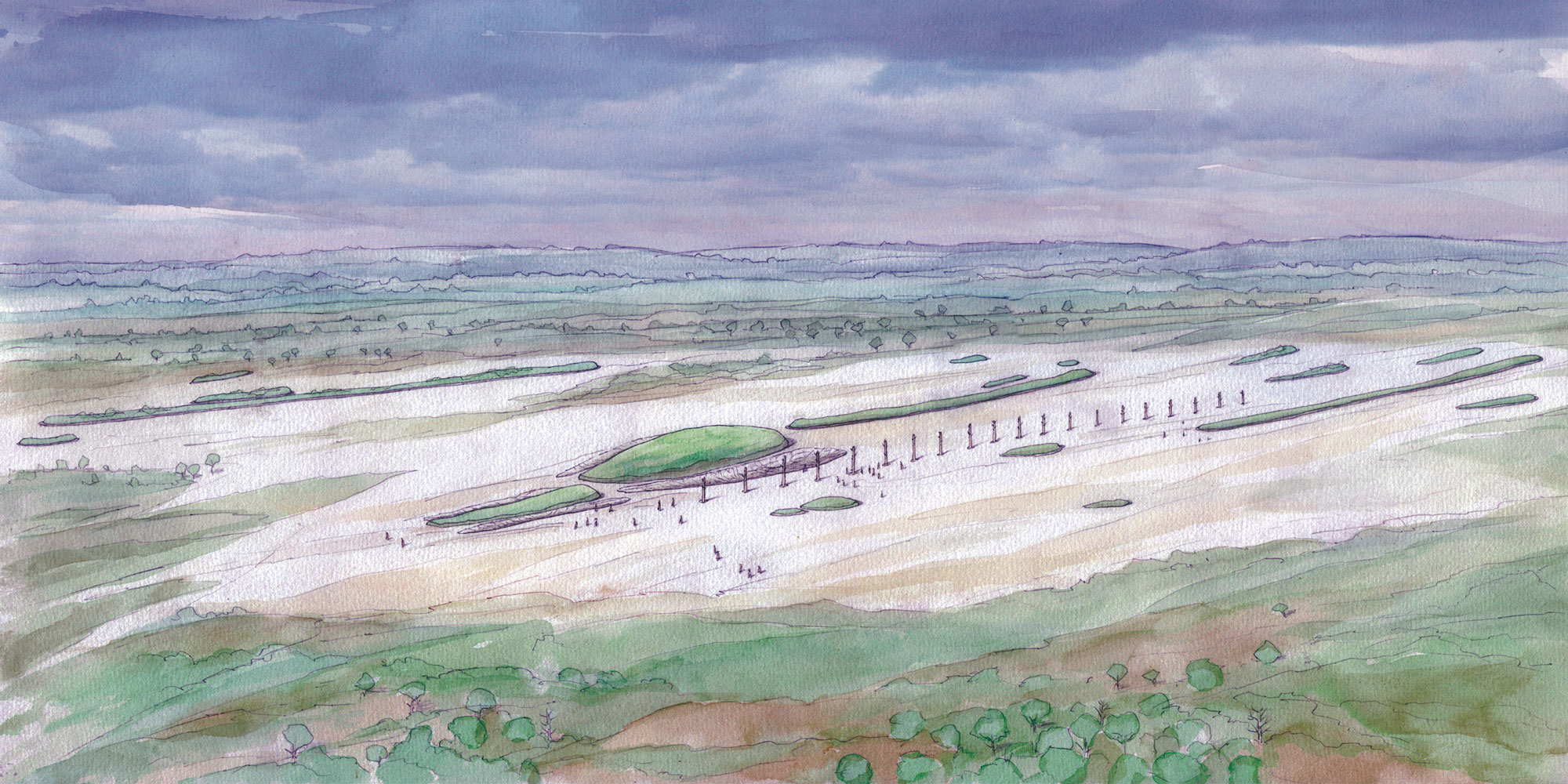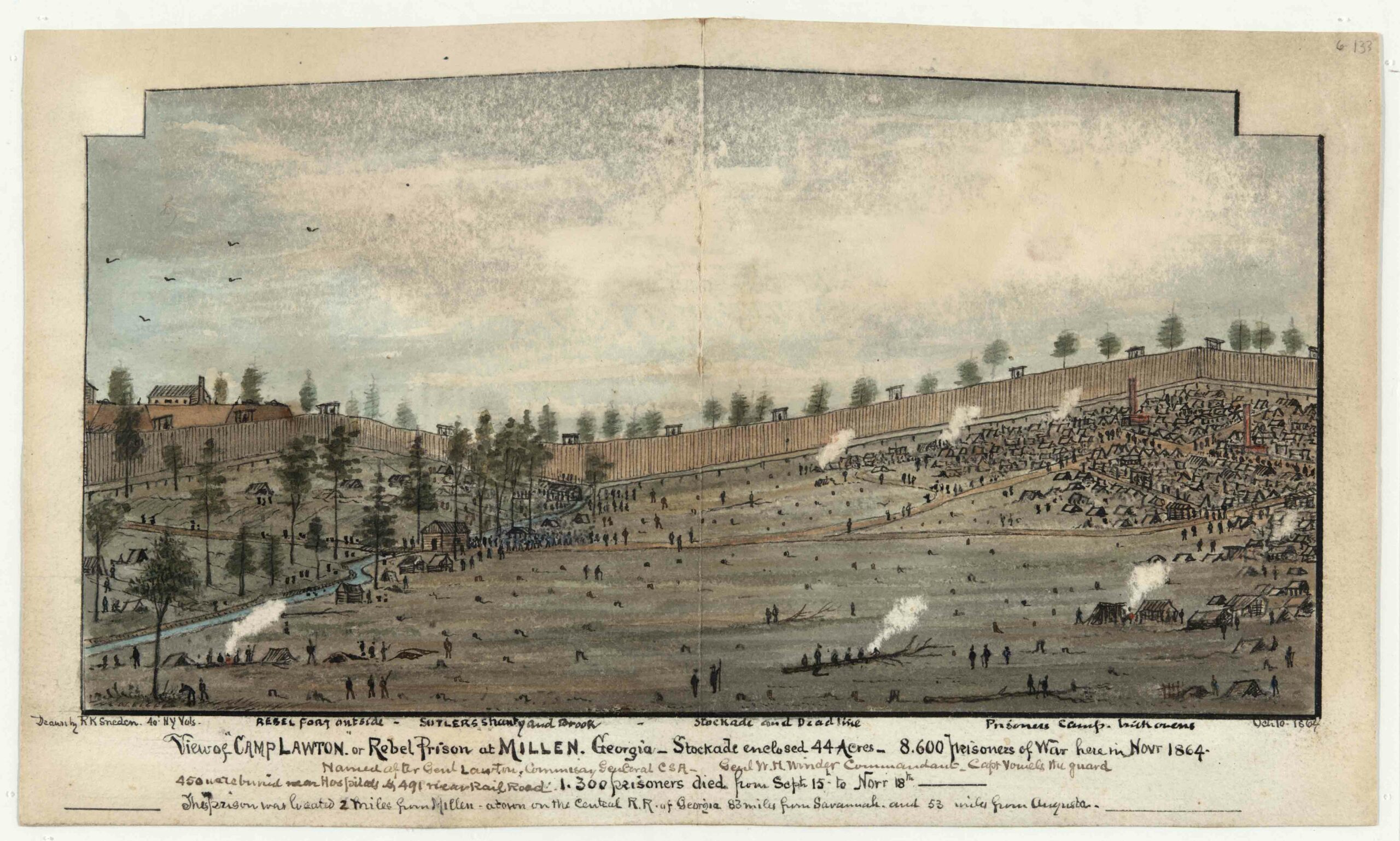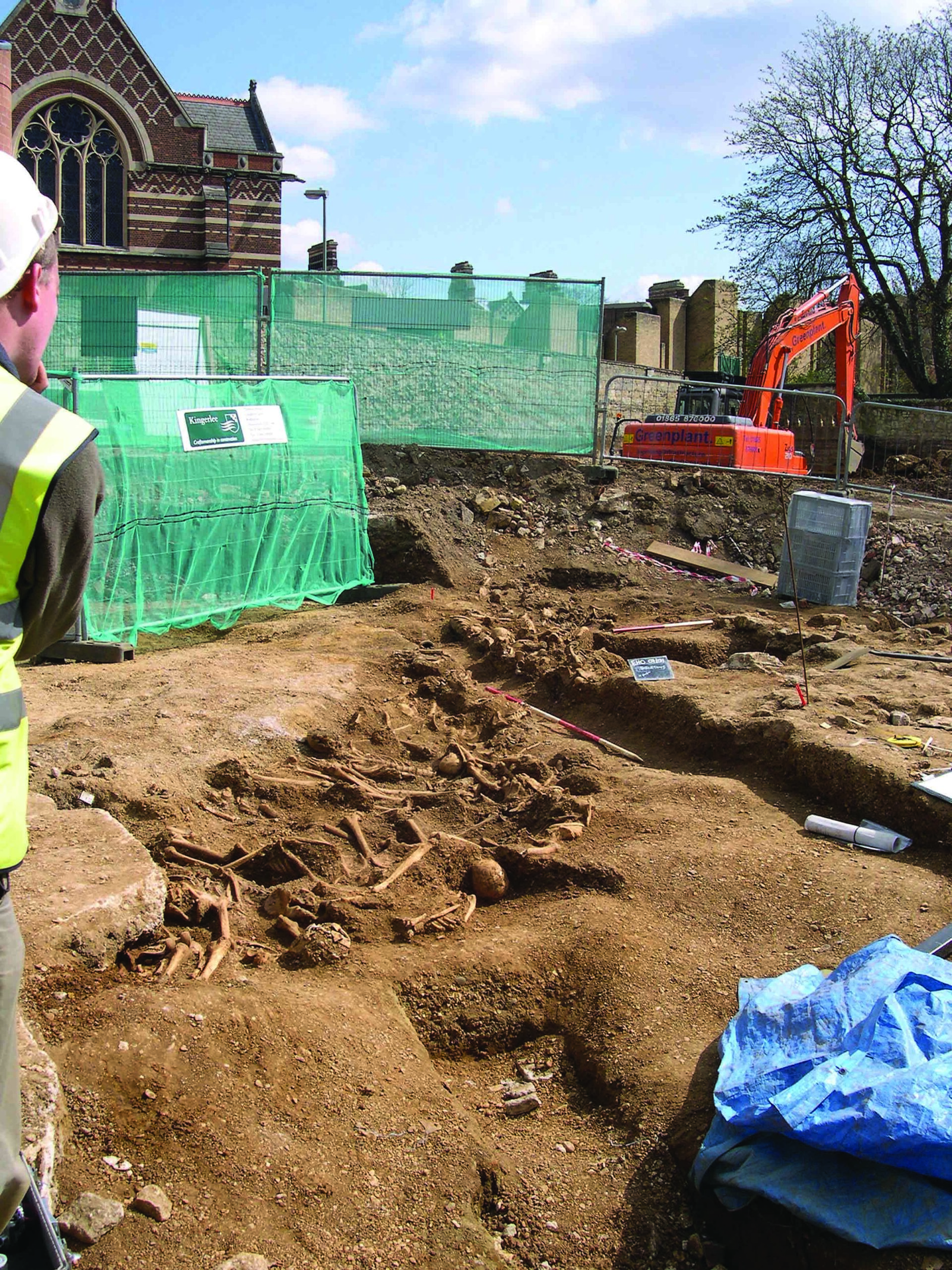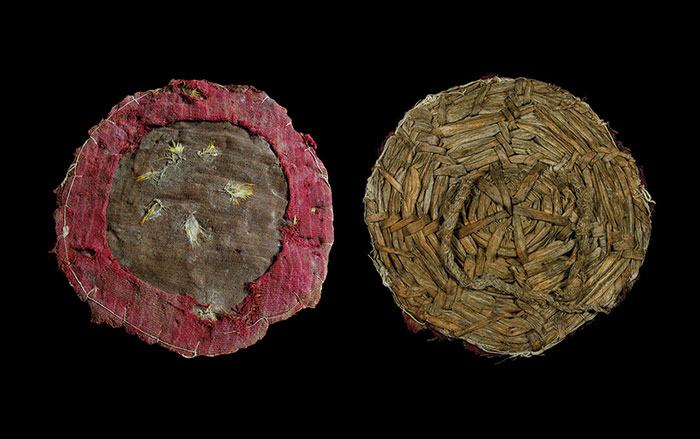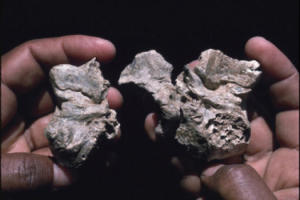
PHOENIX, ARIZONA—Paleoanthropologist William Kimbel of Arizona State University and his colleagues have examined the base of a partial cranium of Ardipithecus ramidus, the 4.4 million-year-old primate known for its ape-like tiny brain and grasping big toe for climbing, and more human-like small teeth and and upper pelvis capable of bipedal locomotion. Kimbel’s results are in line with earlier studies that show the base of Ardi’s cranium links it to 3.4 million-year-old Australopithecus skulls and those of modern humans. “Given the very tiny size of the Ardi skull, the similarity of its cranial base to a human’s is astonishing,” he said.


